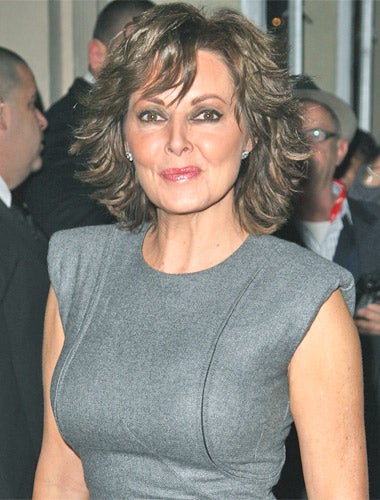Reforms of teacher training will bring mass shortages, report finds
Education Secretary warns his proposal to bar candidates with poor degrees will badly hit maths, languages and sciences

Your support helps us to tell the story
From reproductive rights to climate change to Big Tech, The Independent is on the ground when the story is developing. Whether it's investigating the financials of Elon Musk's pro-Trump PAC or producing our latest documentary, 'The A Word', which shines a light on the American women fighting for reproductive rights, we know how important it is to parse out the facts from the messaging.
At such a critical moment in US history, we need reporters on the ground. Your donation allows us to keep sending journalists to speak to both sides of the story.
The Independent is trusted by Americans across the entire political spectrum. And unlike many other quality news outlets, we choose not to lock Americans out of our reporting and analysis with paywalls. We believe quality journalism should be available to everyone, paid for by those who can afford it.
Your support makes all the difference.Thousands of trainee teachers in subjects suffering a shortage would be barred from the profession under government plans aimed at improving standards in the classroom.
Education Secretary Michael Gove is planning to remove government funding to train as a teacher for anyone with less than a 2:2 degree pass.
A report out today shows that one in three modern language teachers would no longer receive funding for their training as a result of the reforms.
They would also drastically reduce the number of maths trainees (by 25 per cent), physics (by 24 per cent) and chemistry (by 21 per cent).
The report on teacher training standards by Professor Alan Smithers and Dr Pamela Robinson, from Buckingham University's Centre for Education and Employment Research, warns ministers they face a dilemma
"No one wants to see teachers attempting to teach subjects which they do not fully grasp themselves," it says.
"But if not enough people with the necessary expertise put themselves forward, the difficult question that has to be faced... is: is it better to have an able graduate who has not studied a subject at university or someone who has studied the subject at university but not done very well at it?"
Ministers hope to circumvent the problem by attracting high-flying graduates to train in shortage subjects with the help of bursaries of up to £20,000.
The report also reveals that almost four out of 10 trainees (37.8 per cent) fail to take a job in a state school by the January following the completion of their teacher training course. The figure is just slightly worse than last year – the first time it was collated.
"It seems that we are training 38,000 teachers a year in the expectation that just 23,000 will end up as teachers in state schools," said Professor Smithers.
About 11 per cent fail to complete their course while 17.4 per cent are not recorded as being in teaching. The rest either work in independent schools or their whereabouts are unknown. A breakdown of the figures shows again that it is those training in shortage subject areas that are least likely to continue into teaching.
In modern languages, 64.8 per cent go into teaching, science 68.9 per cent and maths 70 per cent. The subject with the worst record is information technology with 64.8 per cent.
"The process does seem wasteful especially bearing in mind that there are more teachers of working age not in schools than there are in teaching," says the report. Figures show there are 483,760 teachers under the age of 60 who have never taught in maintained schools, have left or who now teach outside state schools or overseas.
The report rates Billericay Education Consortium, which trains primary school teachers on the job in the Essex town, ahead of Oxford (second) and Cambridge (third) as the establishment with the best standards in the country.
Billericay scores highly because of its excellent record in persuading trainees to stay on in the teaching profession compared with Oxbridge.
Teaching's loss?
Many people famous in their chosen fields would have been barred from teaching under Michael Gove's proposals. Carol Vorderman is probably the best-known example of someone who would have failed to clear the new entrance bar.
The former Countdown presenter gained only a third-class degree in engineering at Cambridge university. Nevertheless she has a post as the Conservative Party's "maths guru" and last week produced a report recommending that everyone should study the subject up to the age of 18.
Fiona Shackleton QC, who has represented Sir Paul McCartney and the Prince of Wales, would seemingly make a good law teacher but managed only a third in law from Exeter University.
Hugh Laurie, currently the highest-paid actor on television through his role in House (and the new face of l'Oréal), also has a third, in anthropology and archaeology from Selwyn College, Cambridge. While this would rule him out of government funding, Emma Thompson and Stephen Fry, his contemporaries in the Cambridge Footlights, would be eligible thanks to their 2:1s.
The children's author Michael Morpurgo, now a passionate advocate of children's literacy, also has a third – in English and French from London University. For good measure, he also failed his 11-plus.
Join our commenting forum
Join thought-provoking conversations, follow other Independent readers and see their replies
Comments